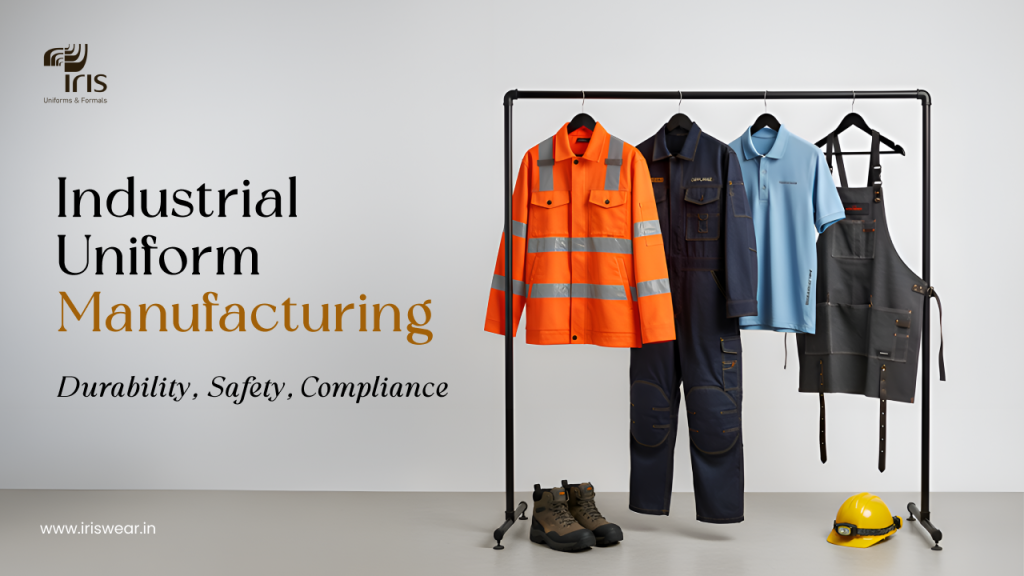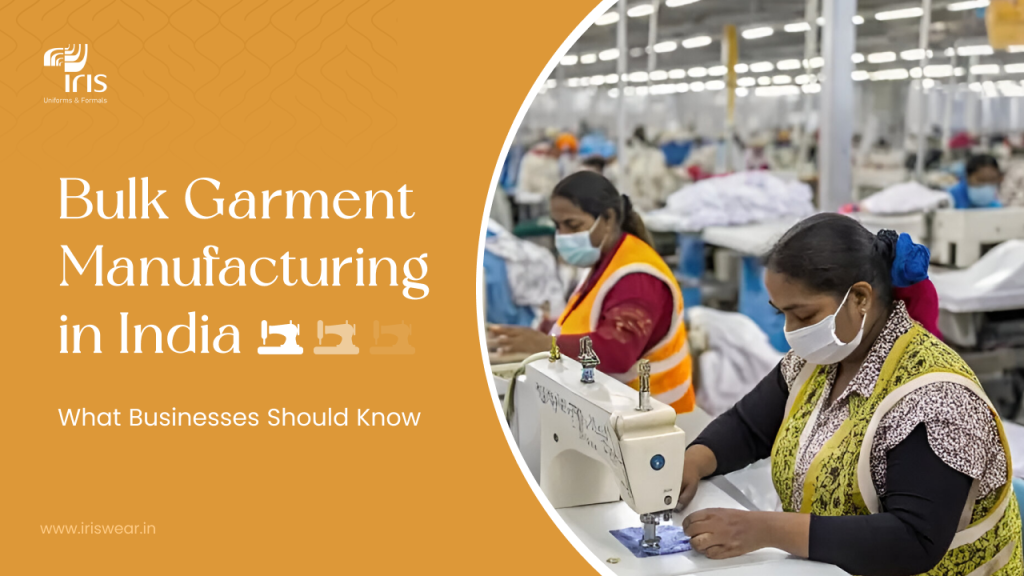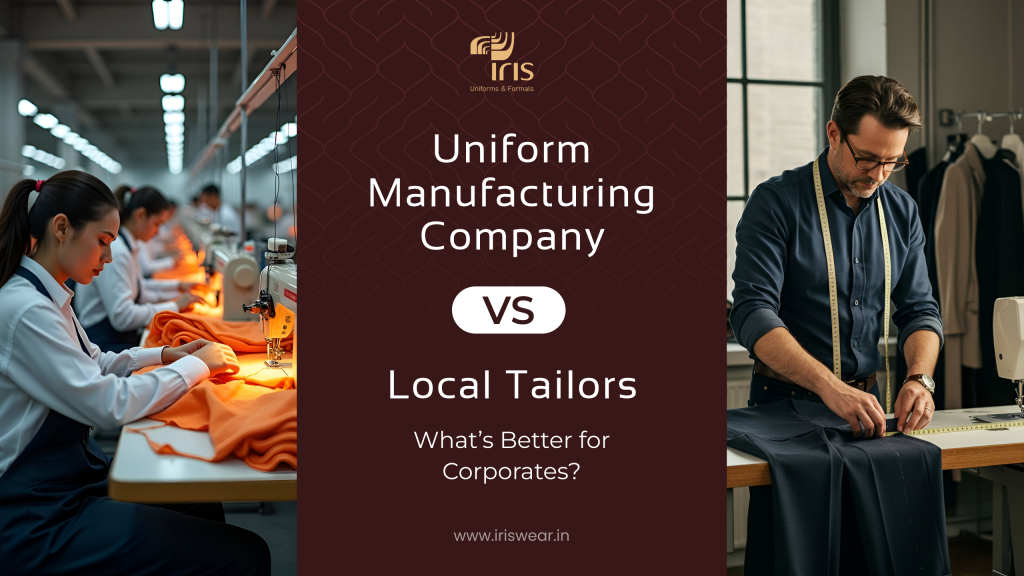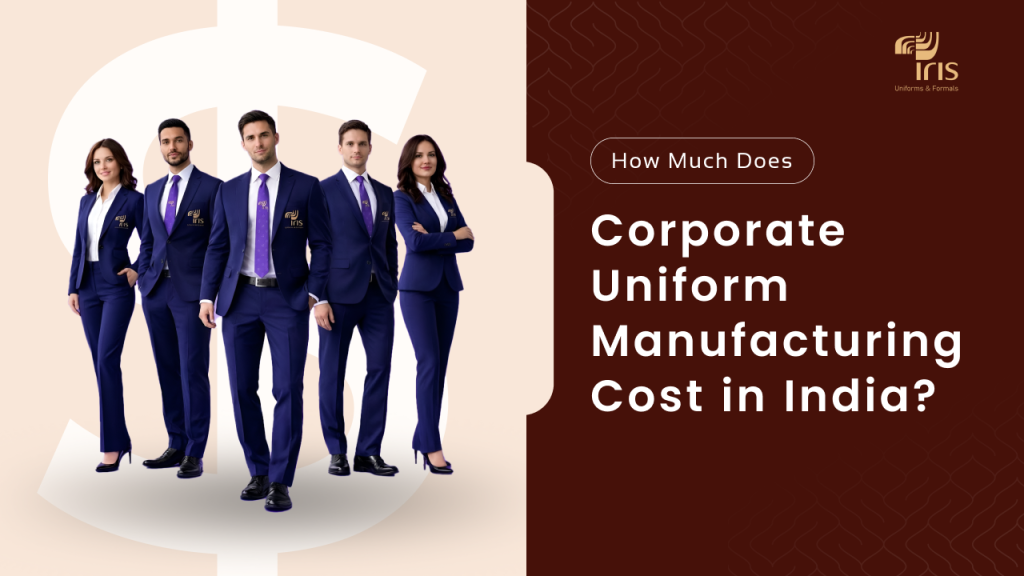
Corporate Uniform Manufacturer Guide: From Design to Delivery
Your team’s attire is often the very first thing a client sees. For all types of businesses in India, a quality, appropriate uniform builds a consistent brand image. But going from simple idea to a tailormade corporate uniform, requires working with the uniform manufacturer that is best for you. This guide will lay out the steps you need to know in order to find the proper corporate uniform manufacturers and how to manage the whole process from a conceptual phase to a finished product delivered to you.
What Does a Corporate Uniform Manufacturer Do?
A uniform manufacturer does much more than assemble clothing. They are specialized providers who run an entire supply chain to make sure your employees are dressed, in a manner appropriate to represent your brand. Their main service components include:
- Design & Concept: Translating your branding, colors and specific job requirements into a wearable design.
- Fabric Sourcing: Fabric choices are now highly regional, with manufacturers selecting materials that specifically suit local conditions, like the hot and humid Indian climate.
- Pattern Making and Sampling: Creating exact patterns for all required sizes, and producing physical samples for approval, before entering the bulk production stage.
- Mass Production & Quality Control: Handling the bulk cutting, stitching and finishing, while conducting all necessary quality checks to ensure consistency across thousands of garments
- Branding: Adding your company logo through high quality embroidery or printing
- Logistics: Packaging, labeling, and shipping your finished uniforms across Pan India.
To summarize, a true company uniform supplier will offer an end-to-end service for your company uniforms which can provide consistency, quality, and fit for your entire workforce.
Why Are Corporate Uniforms Important for Businesses?
When you buy quality corporate uniforms, you are making a strategic business decision, not just a purchase. They fill a number of functions that will immediately impact your brand’s bottom line:
- Increase Professionalism and Trust: Uniforms provide an immediate, visible indicator that you are disciplined, stable, and professional exactly what is needed when in the presence of clients in some industries banking, hospitality, and healthcare to name a few.
- Brand Identity: Uniforms are an advertisement in motion. They keep your official colors and logo in front of customers 24/7, building brand visibility and helping to differentiate from your competition.
- Create Teamwork and Equality: Uniforms equalize fashion competition, and show individuals they are part of a team, feeling as if they belong.
- Enhance Safety and Functionality: In manufacturing, warehousing, and healthcare, uniforms are often equipped with specific safety attributes and features in the fabric for durability and performance that affect comfort and safety.
How Does the Corporate Uniform Design Process Work?

Corporate Uniform Manufacturing process
Creating a custom uniform is indeed a detail-oriented process carried out by the corporate uniform manufacturers to ensure that at each step, your final product meets every requirement of both the operational and brand realms of your organization:
Discovery/Briefing:
You will meet with the design team from the manufacturer to share your brand (color, logo details) work context (air-conditioned office vs outdoor service), and the functional needs of the employees (stain resistant and pocket placement for example).
Concept/Sketch:
The design team will create some preliminary sketches or digital mock-ups come from this brief and provide some options for style, silhouette and fabrics etc.
Fabric/Color:
You will select the final fabric (for instance breathable cotton blends for hot climates, wrinkle free poly viscose for everyday wearing) and ensure the shade of the color to meet your brand color palette.
Sampling/Fitting:
A small sample batch will be produced. This will be the vital stage for comfort, fit, durability and the way the logo looks when embroidered or printed. You may need to go back and forth many times in sampling.
Final Production Approval:
After the sample has been approved, the manufacturer will finalize the pattern across all sizes and undertake the bulk cutting and manufacturing.
What Factors Should You Consider When Designing Corporate Uniforms?
The era of formal, traditional corporate clothing has ended. Today’s Corporate Wear styles focus on comfort, versatility, and a casual-smart aesthetic that mirrors the reality of office life as follows:
Casual-smart:
Rather than a full suit, smart-casual is opting for tailored trousers, fresh white shirts, and refined Nehru or bandhgala jackets, which achieve a professional yet relaxed outfit and give a sharp yet casual look.
Performance fabrics:
Four-way stretch fabrics are being adopted everywhere, moving beyond the gym and into the store employee uniform. Uniforms now commonly feature high-tech finishes like anti-microbial treatments and moisture-wicking materials. This allows employees serving customers all day to stay comfortable, fresh, and polished, regardless of how busy or warm the environment gets.
Monochrome and understated tones –
Distancing itself from more bold patterns for the office profile, a sparer single block colour combination (monochromatic black, navy or grey) injects more polished refinement with professionalism.
Blazers & waistcoats:
Another item fast becoming a style piece is oversized comfortable blazers. It also paves the way for waistcoat to re-emerge as a single stand-alone item (and) to bring polish and structure to any otherwise plain shirt.
Sustainable sourcing:
Uniforms produced from sustainable and ethically sourced or recycled materials increasingly proves popular; providing another dimension for brands to showcase and promote their indictment of sustainability and increased concern for our environment.
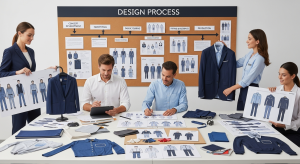
Corporate Uniform Manufacturing Guide
What Are the Latest Trends in Corporate Uniform Design?
Gone are the days of rigid, traditional corporate wear. The latest Corporate wear trends are centered on comfort, flexibility, and a smart-casual vibe that reflects modern office culture as follows:
Sustainability and Circularity
Current uniforms are now made from recycled and organic materials – like recycled polyester and Tencel – to lessen the impact on the environment. The emphasis is now on durability and recycling initiatives to ensure that clothing can have extended life and avoid the landfill.
Comfort and Athleisure Integration
The stiff, fitted style is out, replaced by a looser, boxy shapes that allow for movement and all-day comfort. Fabrics have performance technology, such as wrinkle resistance and moisture-wicking, to keep employees looking sharp and fresh.
Inclusivity and Modularity
Designs are increasingly being inclusive, offering styles that are gender-neutral, and include features like adaptive fastenings to accommodate a diverse workforce. Uniforms are offered as modular pieces that can be layered, giving employees flexibility in mixing and matching pieces for both function and comfort.
Modern Aesthetics and Branding
Color stories are shifting to a sophisticated earthy neutral palette (think mocha, olive green) but maintain a punch of more vivid color. Branding is becoming more sophisticated as well, often using a subtle, minimal logo or tone-on-tone embroidery instead of the a more aggressive branding experience.
How to Choose the Right Company Uniform Supplier?
Choosing the top corporate uniform manufacturers is one of the most significant decisions you will make. Take into consideration the following non-negotiables that are not negotiable criteria when rating a manufacturer:
- Experience and Portfolio: Look for a manufacturer that has experience serving organizations in your industry (for example, if you are a hotel, look for a manufacturer that has strong hospitality customers).
- In-House Production and Quality Control: A manufacturer that has their own production capabilities (cutting, stitching, embroidery) has greater control over quality, lead times, and can and will be produce the same batches consistently.
- Willingness to Customize: The supplier must possess the desire and ability to completely customize the design based your unique specifications related to color, fit, and material-not just give you a template to design from.
- Ability to Deliver Bulk Orders on Time: You need to verify that the vendor has the capabilities to fulfill your required order volume (especially if you orders that would be large) and that they have a track record as a company for getting the goods to where they need to be throughout India.
- Fabric Sourcing and Quality: They should offer a selection of high-quality, durable fabrics for a Indian environment and be able to tell you where they sources the fabrics.
Why Partnering with the Right Manufacturer Matters?
When the goal is to find the best uniform manufacturer, keep in mind that you are not purchasing a product. You are purchasing a critical part of your company’s operational effectiveness. A good partnership, such as a uniform supplier you trust, like Iris, will give you an experience that will make your uniform an asset, not a liability. You will enjoy:
- Consistent Brand Image: Your team will look the same no matter where and when the uniform is purchased.
- Comfort for Employees: Quality uniforms adapted to the individual will make staff happy, and more productive.
- Cost Savings: High-quality uniforms save your company money over time by lasting longer.
A great uniform is a worthwhile investment in your employees and in the future of your brand.

